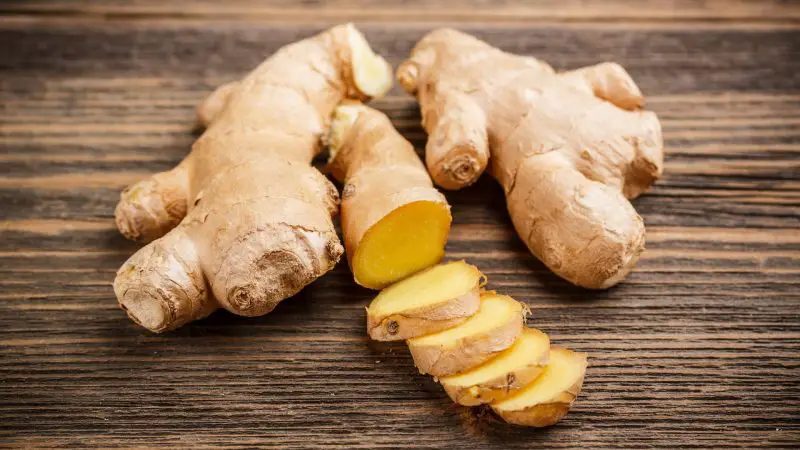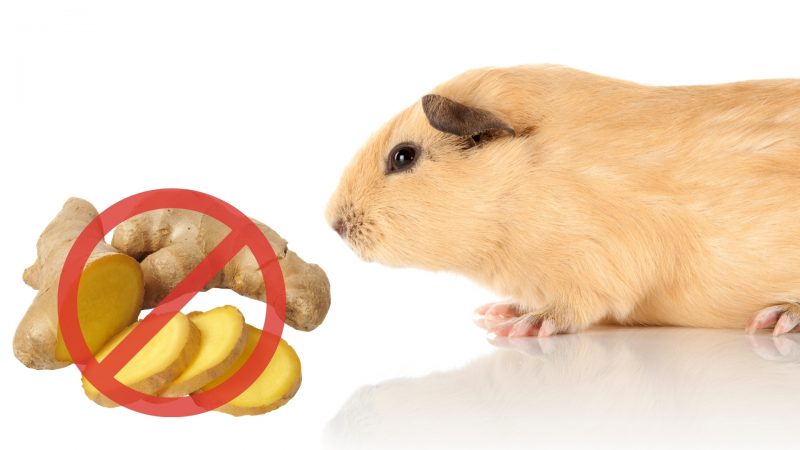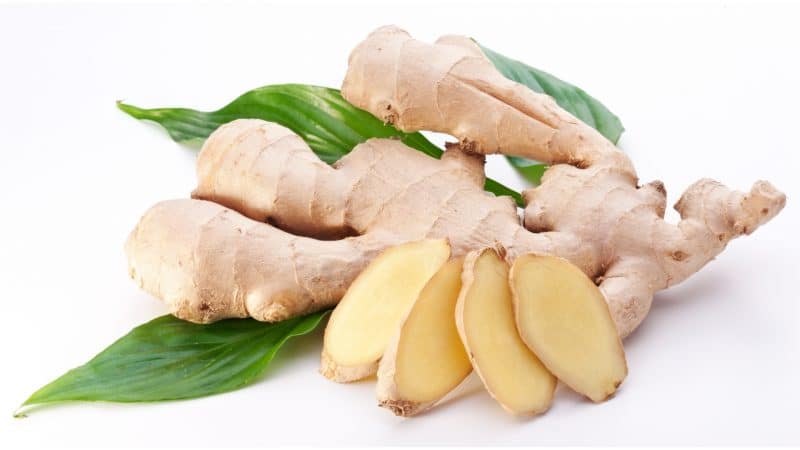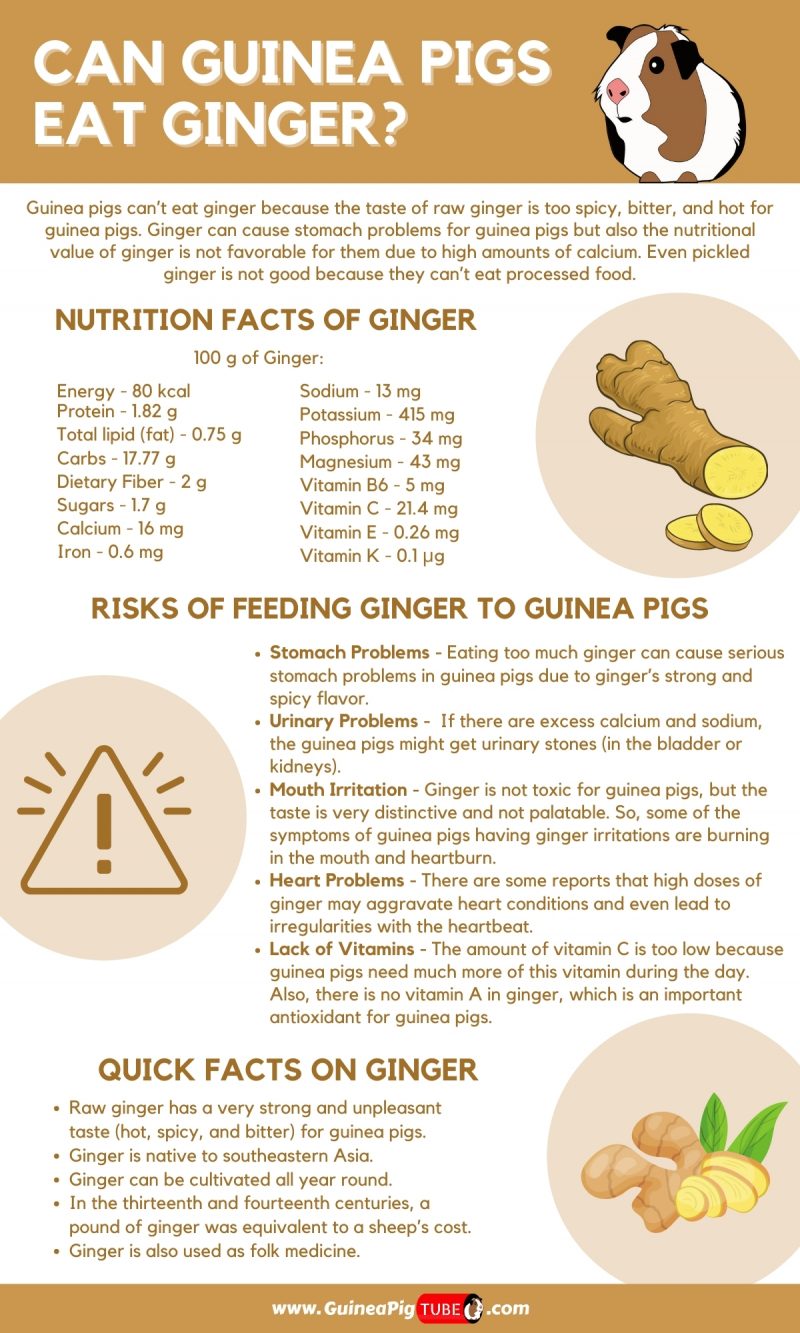Since ancient times, people have utilized ginger in both cooking and healing. It is still a well-liked home cure for sickness, stomach discomfort, and other medical conditions. But for guinea pigs, it’s the other way around.
Guinea pigs can’t eat ginger because the taste of raw ginger is too spicy, bitter, and hot for guinea pigs. It causes stomach problems for guinea pigs but also the nutritional value of ginger is not favorable for them due to its high amounts of calcium. I leave ginger out of my guinea pig diet.
Table of Content
Nutrition Facts of Ginger

A serving of 3 oz (100 g) ginger root (raw) has the following nutrients:
- Energy – 80 kcal
- Protein – 1.82 g
- Total lipid (fat) – 0.75 g
- Carbs – 17.77 g
- Dietary fiber – 2 g
- Sugars – 1.7 g
- Calcium – 16 mg
- Iron – 0.6 mg
- Magnesium – 43 mg
- Phosphorus – 34 mg
- Potassium – 415 mg
- Sodium – 13 mg
- Zinc – 0.34 mg
- Copper – 0.226 mg
- Manganese – 0.229 mg
- Selenium – 0.7 µg
- Vitamin C – 5 mg
- Vitamin B-6 – 0.16 mg
- Vitamin E – 0.26 mg
- Vitamin K – 0.1 µg
- Thiamin – 0.025 mg
- Riboflavin – 0.034 mg
- Niacin – 0.75 mg
- Pantothenic acid – 0.203 mg
- Folates – 11 µg
Can Ginger Be Bad for Guinea Pigs? | Possible Risks

- Stomach problems – Eating too much ginger can cause serious stomach problems in guinea pigs due to ginger’s strong and spicy flavor. Some of these problems are diarrhea, heartburn caused by stomach acid, bloating, and gases.
- Urinary problems – Another risk is calcium. It’s a scientific and proven fact that calcium together with phosphorus binds and makes healthy and strong bones. But, for rodents, in this case, guinea pigs, these nutrients are not healthy. If there are excess calcium and sodium, the guinea pigs might get urinary stones in the bladder or kidneys.
- Mouth irritation – Ginger is not toxic for guinea pigs, but the taste is very distinctive and not palatable. Some of the symptoms of guinea pigs having ginger irritations are burning in the mouth and heartburn.
- Heart problems – There are some reports that high doses of ginger may aggravate heart conditions and even lead to irregularities in the heartbeat. Also, ginger may increase the risk of bleeding.
- Lack of vitamins – The amount of vitamin C is too low because guinea pigs need much more of this vitamin during the day. If guinea pigs don’t get enough vitamin C daily, they can get a disease called scurvy.
Can Guinea Pigs Eat Ginger Greens?

Guinea pigs can’t eat ginger greens or ginger leaves. These leaves have spicy, bitter, and hot flavors as well. This flavor isn’t too intense as the ginger root, but it’s enough for guinea pigs to get diarrhea, vomiting, or gases. So, it’s better to avoid feeding ginger greens to guinea pigs. There are many other leaves your guinea pigs can eat and enjoy, such as dandelion leaves and apple leaves.
Quick Facts on Ginger
- Raw ginger has a very strong and unpleasant taste (hot, spicy, and bitter) for guinea pigs.
- Ginger is native to Southeastern Asia.
- Ginger can be cultivated all year round.
- In the thirteenth and fourteenth centuries, a pound of ginger was equivalent to a sheep’s cost.
- Ginger is also used in folk medicine.

We have also made a full list of foods that guinea pigs can and can’t eat (150+ Types of Foods). Be sure to also check our recommended products page for everything you will ever need to assure a happy life for your guinea pigs. Hope this information was helpful and you have found the answer you were looking for.
List of Sources
Nutrient Requirements of Laboratory Animals: Fourth Revised Edition
The Effects of Diet on Anatomy, Physiology and Health in the Guinea Pig
